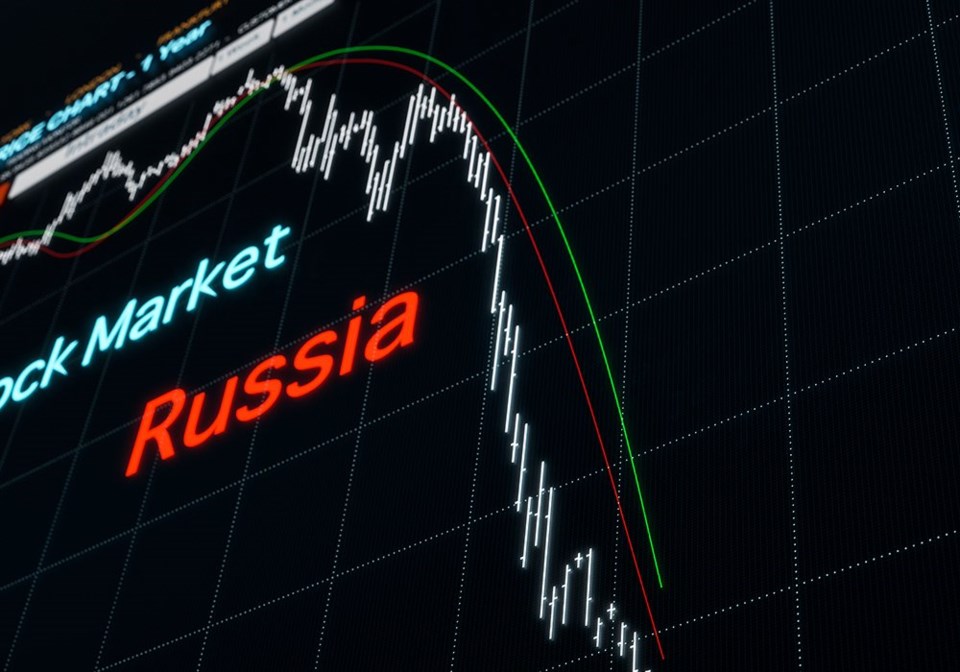WESTERN PRODUCER — The war in Ukraine will result in a new world order that will have profound implications for every sector of the economy, says an expert in geopolitics.
“The world is a crazy place (and) I guarantee you it’s going to get crazier,” Jacob Shapiro, founder of Perch Perspectives, said during a recent FarmLink Marketing Solutions webinar.
“I’m a natural optimist, so when even I am telling you that things are looking bad from my geopolitical perspective, it’s a pretty bad sign.”
The last time the international political system looked this polarized and unstable was the 1890s.
Shapiro thinks Russian President Vladimir Putin made a “colossal mistake” by invading Ukraine. But his first mistake was annexing Crimea and supporting the insurgencies in the Donbas region.
Those moves took most of the pro-Russian population out of Ukraine and paved the way for the election of a pro-West government.
Russia’s economy is being hammered by international sanctions and the country will be a weaker world power coming out of the war. But that’s not the full extent of the damage.
“They have awakened Germany and they have awakened the European Union,” said Shapiro.
German Chancellor Olaf Scholz has pledged US$113 billion in new spending to beef up the country’s military. And Germany’s finance minister announced $220 billion to fund the industrial transformation of the country.
“In the net, I think this is probably good for Canada because a stronger European Union means more stability,” he said.
However, it also makes the EU a bigger competitor.
Russia will continue to isolate itself from the global community and there will be considerable instability in Eastern Europe, central Asia and the Caucasus, he predicted.
Shapiro also had some thoughts on China, which is Canada’s biggest market for cereal grains.
“In the long-term, you have to think about access to China’s market as a bonus, not as something you can rely on,” he said.
China is increasing crop yields, acquiring land abroad and diversifying its source of imports. The country has an aging population and its population growth rate has been steadily declining for decades.
“China imports from Canada right now because they don’t have a choice and because we’re at the tail-end of an era of globalization,” said Shapiro.
He believes tensions between China and western nations are about to build up but not because of Taiwan.
Shapiro doesn’t think China has the military chops to mount an amphibious assault on the island.
It is just starting to build modern amphibious transport ships and training pilots to fly on and off aircraft carriers. And it is terrible at anti-submarine warfare.
He believes it will be another decade before China invades Taiwan. But he could see conflict happening in some of the other smaller contested islands in the South China Sea.
Shapiro said China is not happy about the pro-U.S. government elected in South Korea and may be willing to use North Korea to stoke tensions in that region.
He advised Canadian farmers to devise an exit strategy from China by cultivating a series of replacement markets.
Indonesia should be one of those markets because there is huge projected growth in consumption and imports in that country.
“From your perspective, this is a major opportunity,” he said.
Indonesia has a young and growing population, is outperforming economic growth forecasts and has no aspirations to become a political power, so it should be a stable market.
India is another market to watch because more than half of the country is experiencing extremely high water stress and models show that its monsoons are becoming increasingly erratic, which hurts the country’s long-term production prospects.
Turkey is the other market Shapiro highlighted. It is becoming an intriguing sphere of influence and one of the only countries that can bring order to the Middle East.
“Turkey is going to be a major power in this part of the world,” he said.

